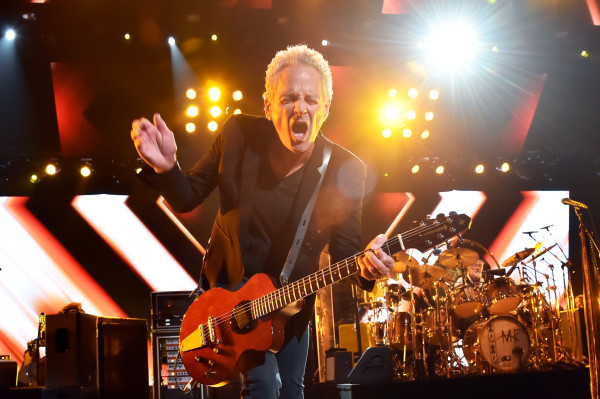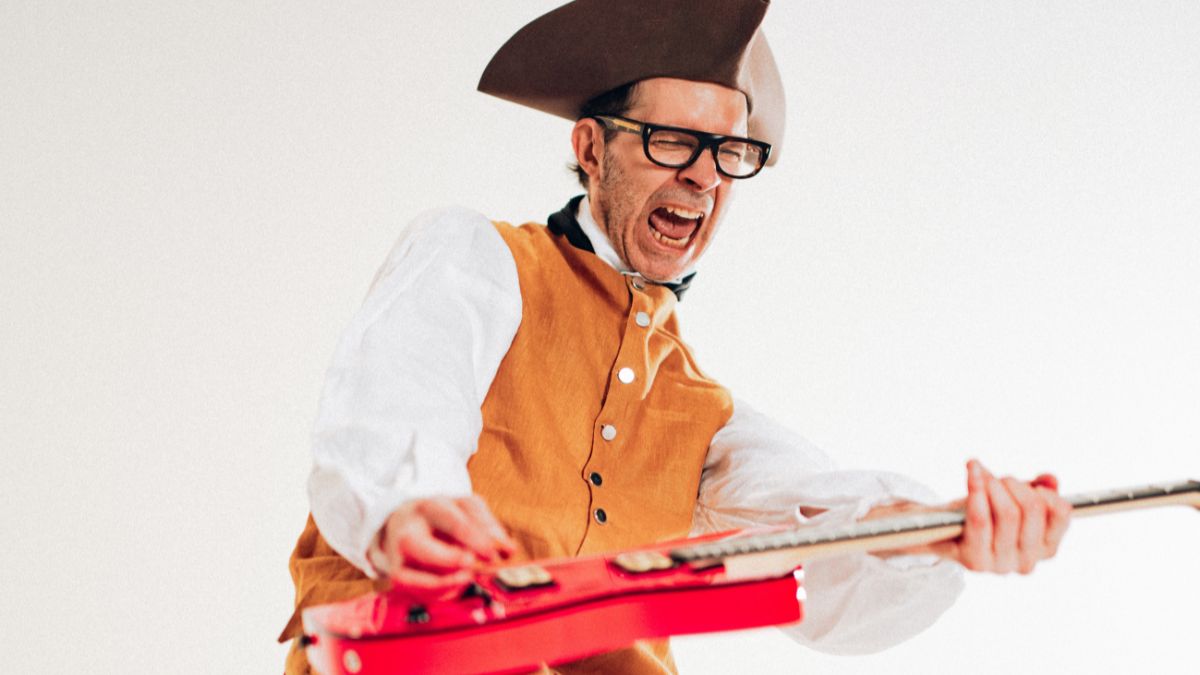Lindsey Buckingham Responds to Fleetwood Mac Firing: "They'd Lost Their Perspective"
All the latest guitar news, interviews, lessons, reviews, deals and more, direct to your inbox!
You are now subscribed
Your newsletter sign-up was successful

Despite his lengthy and celebrated tenure with Fleetwood Mac, the iconic British/American band relieved guitarist Lindsey Buckingham of his duties just over a month ago. This past Friday night, Buckingham publicly addressed the firing for the first time—while performing at a campaign fundraiser for California Democratic congressional candidate Mike Levin.
"It's been an interesting time on a lot of levels," Buckingham told the crowd. "For me, personally, probably some of you know that for the last three months I have sadly taken leave of my band of 43 years, Fleetwood Mac. This was not something that was really my doing or my choice. I think what you would say is that there were factions within the band that had lost their perspective [a female fan shouts, 'Fuck Stevie Nicks!', prompting Buckingham to raise his hand].
"Well, it doesn't really matter. The point is that they'd lost their perspective. What that did was to harm—and this is the only thing I'm really sad about, the rest of it becomes an opportunity—it harmed the 43-year legacy that we had worked so hard to build [another fan chimes in, 'That you built, Lindsey']. That legacy was really about rising above difficulties in order to fulfill one's higher truth and one's higher destiny."
It should be noted that "43 years" is actually more like "33 years" (when you pull out the ol' iPhone calculator). Buckingham joined Fleetwood Mac a few months after guitarist/singer Bob Welch quit in 1974. Buckingham made his recording debut with the crew on 1975's Fleetwood Mac, which spawned several hits, including "Rhiannon," "Landslide" and "Say You Love Me." He also was a major driving force behind two of their most iconic albums (of their "pop" period, anyway), 1977's Rumours and 1979's Tusk. That said, Buckingham left Fleetwood Mac in 1987—only to rejoin the gang 10 years later. He had been with them ever since—until the firing, of course.
"Words like 'fired' are ugly references as far as I'm concerned," drummer and band cofounder Mick Fleetwood told Rolling Stone last month. "Not to hedge around, but we arrived at the impasse of hitting a brick wall. This was not a happy situation for us in terms of the logistics of a functioning band. To that purpose, we made a decision that we could not go on with him. Majority rules in term of what we need to do as a band and go forward."
Buckingham was replaced by two guitarists—the late Tom Petty's former right-hand man, Mike Campbell, and Neil Finn, he of Split Enz and Crowded House fame. The new version of Fleetwood Mac recently announced a 2018 tour, and you can see all the dates right here.
All the latest guitar news, interviews, lessons, reviews, deals and more, direct to your inbox!

Damian is Editor-in-Chief of Guitar World magazine. In past lives, he was GW’s managing editor and online managing editor. He's written liner notes for major-label releases, including Stevie Ray Vaughan's 'The Complete Epic Recordings Collection' (Sony Legacy) and has interviewed everyone from Yngwie Malmsteen to Kevin Bacon (with a few memorable Eric Clapton chats thrown into the mix). Damian, a former member of Brooklyn's The Gas House Gorillas, was the sole guitarist in Mister Neutron, a trio that toured the U.S. and released three albums. He now plays in two NYC-area bands.
